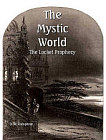
|
Historical Reprints
History of the Fabian Society
|
History of the Fabian Society

Description
of the
Fabian Society
(1916)
by Edward R. Pease
The early history of the society named after the Roman warrior Fabius. This history is written by its founder Edward Pease. Read first hand the beginnings of the modern Conservative movement or rather socialism masked as Conservative Democracy. You will be able to see how this movement has evolved from its beginnings and how it has moved to the forefront of ending personal freedoms through long laid plans.
The History of the Fabian Society will perhaps chiefly interest the members, present and past, of the Society. But in so far as this book describes the growth of Socialist theory in England, and the influence of Socialism on the political thought of the last thirty years, I hope it will appeal to a wider circle.
"Britain as a whole never was more tranquil and happy," said the "Spectator," then the organ of sedate Liberalism and enlightened Progress, in the summer of 1882. "No class is at war with society or the government: there is no disaffection anywhere, the Treasury is fairly full, the accumulations of capital are vast"; and then the writer goes on to compare Great Britain with Ireland, at that time under the iron heel of coercion, with Parnell and hundreds of his followers in jail, whilst outrages and murders, like those of Maamtrasma, were almost everyday occurrences. HiddenMysteries
Excerpt from Preface:

Some of the problems of the early eighties are with us yet. Ireland is still a bone of contention between political parties: the Channel tunnel is no nearer completion: and then as now, when other topics are exhausted, the "Spectator" can fill up its columns with Thought Transference and Psychical Research.
But other problems which then were vital, are now almost forgotten. Electric lighting was a doubtful novelty: Mr. Bradlaugh's refusal to take the oath excited a controversy which now seems incredible. Robert Louis Stevenson can no longer be adequately described as an "accomplished writer," and the introduction of female clerks into the postal service by Mr. Fawcett has ceased to raise alarm lest the courteous practice of always allowing ladies to be victors in an argument should perforce be abandoned.
But in September of the same year we find a cloud on the horizon, the prelude of a coming storm. The Trade Union Congress had just been held and the leaders of the working classes, with apparently but little discussion, had passed a resolution asking the Government to institute an enquiry with a view to relaxing the stringency of Poor Law administration. This, said the "Spectator," is beginning "to tamper with natural conditions," "There is no logical halting-place between the theory that it is the duty of the State to make the poor comfortable, and socialism."
Another factor in the thought of those days attracted but little attention in the Press, though there is a long article in the "Spectator" at the beginning of 1882 on "the ever-increasing wonder" of that strange faith, "Positivism." It is difficult for the present generation to realise how large a space in the minds of the young men of the eighties was occupied by the religion invented by Auguste Comte. Of this however more must be said on a later page.
Paperback, 5 x 8, 280+ pages (illustrated)















